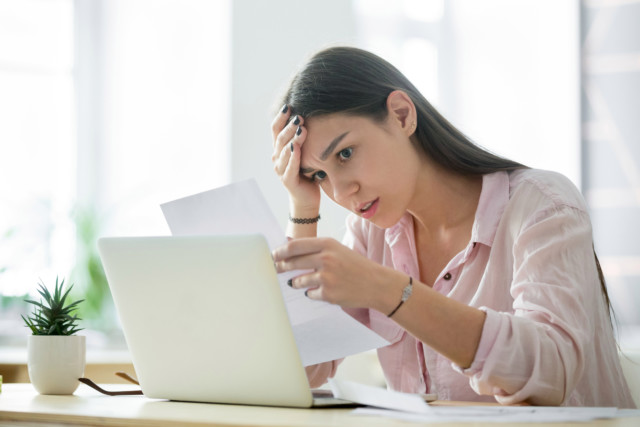MONEY you owe to a bank or on a credit card can be sold on to another company if you fall behind on repayments.
The new company will try and collect this unpaid debt and if you ignore it, you may end up paying back more than you borrowed.
Sorting out debt problems sooner rather than later can avoid extra costs and stress
Here we explain when your debts can be sold on, what it means for paying it back and how to avoid it costing you more.
If you are behind on any debt it’s better to seek help sooner rather than later, and you can find support that’s totally free from charities like Step Change, National Debtline and Citizens Advice.
Why is my unpaid debt sold on?
If you you don’t keep up with repayments on a loan or credit card (known as falling into arrears) the lender can end up selling on the debt to another company.
Debt can be sold on to a company known as a debt purchaser, or a debt collection agency.
A debt collection agency can also collect money on behalf of the original lender without it being sold on.
Debt is usually sold on when it has been outstanding for a long time and the bank or credit card company don’t want the hassle of trying to get it back.
But if your unpaid debt is sold on, you still owe the money to the new company.
Can my debts be sold on?
Only certain types of debt can be sold on to another company.
Debts regulated by the consumer credit act can be sold on and this usually includes:
- Credit cards
- Hire purchase agreements
- Payday loans
- Personal loans
- Store cards
- Store finance
- Buy now, pay later (BNPL)
- Catalogues
Debts that can’t be sold on include council tax, utility bills and mortgages.
But you can still be chased for payment of these directly by the council, energy company or mortgage lender, or by a debt collector on their behalf and you should seek debt advice if you’re behind on any payments.
What happens if my debt is sold on?
You should be told if your debt is sold on by the company you originally borrowed money from.
So if you had a personal loan from a bank and it’s been sold on, the bank should tell you.
You should also get a letter from the company that buys your debt, which includes the name of the original lender and account number so you know which debt it is.
The new company could also start calling to ask for payment too.
Debt charity Step Change advises that if you’ve been contacted by a debt collector, been told that your debt might be sold on then you should seek debt advice.
You still owe the money and the original credit agreement you have remains the same.
Can my debt cost more after it’s sold on?
When your debt is sold on, the terms remain the same, it’s just who you owe it to that changes.
The new creditor can’t suddenly increase the amount of money you owe or charge you more interest out of the blue.
The agreement you had with the original creditor, like the bank or card company, stays as it is.
But if your original credit agreement says you can be charged for late or missed payments, the new creditor can continue to add on these costs, though they must still be fair.
As StepChange explains, it wouldn’t be fair to charge you £100 for a letter, even if this was included in your credit agreement, because this is a lot more than the actual cost of writing and posting a letter.
You can reach an agreement to reduce or stop any further interest and late payment charges (if they are part of your original credit agreement) so they don’t build up on top of your original debt.
A new creditor can take action to recover the debt, like going to court and getting bailiffs involved, and this could be something you have to pay for on top of the debt.
You should seek debt advice before it reaches this stage and you can work out a way to make affordable repayments or other debt plan to avoid it reaching court and bailiff action.
This is usually a last resort for the creditor if no agreement has been reached to repay the debt.








